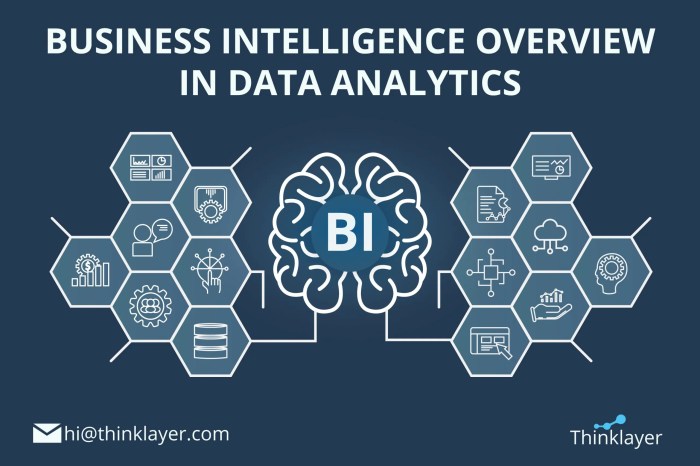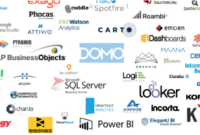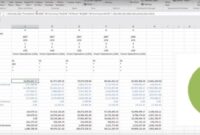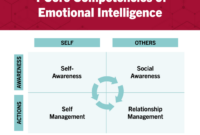Data analytics business intelligence – Data analytics and business intelligence have emerged as transformative forces in the business landscape, empowering organizations to make data-driven decisions that drive growth and innovation.
By leveraging data analytics and business intelligence tools, businesses can extract insights from vast amounts of data, uncover hidden patterns, and gain a competitive edge in today’s rapidly evolving market.
Data Analytics and Business Intelligence: Definitions and Concepts: Data Analytics Business Intelligence
Data analytics and business intelligence are two closely related but distinct disciplines that use data to improve decision-making. Data analytics focuses on the analysis of data to extract insights, while business intelligence focuses on the use of data to make better business decisions.
There are many similarities between data analytics and business intelligence. Both disciplines use data to improve decision-making, and both require a deep understanding of data analysis techniques. However, there are also some key differences between the two disciplines.
Differences Between Data Analytics and Business Intelligence
- Focus: Data analytics focuses on the analysis of data, while business intelligence focuses on the use of data to make better business decisions.
- Skills: Data analysts typically have a strong background in statistics and data analysis techniques, while business intelligence professionals typically have a strong background in business and management.
- Tools: Data analysts typically use a variety of data analysis tools, such as SQL, Python, and R, while business intelligence professionals typically use a variety of business intelligence tools, such as Tableau, Power BI, and QlikView.
Benefits of Data Analytics and Business Intelligence
Data analytics and business intelligence can provide a number of benefits to businesses, including:
- Improved decision-making: Data analytics and business intelligence can help businesses make better decisions by providing them with insights into their data.
- Increased efficiency: Data analytics and business intelligence can help businesses improve their efficiency by automating tasks and identifying areas for improvement.
- Reduced costs: Data analytics and business intelligence can help businesses reduce costs by identifying inefficiencies and finding ways to improve their operations.
- Increased revenue: Data analytics and business intelligence can help businesses increase revenue by identifying new opportunities and developing new products and services.
Data Analytics and Business Intelligence Tools and Technologies

There are a wide variety of data analytics and business intelligence tools and technologies available. Some of the most popular tools include:
| Tool | Features | Pricing | Use Cases |
|---|---|---|---|
| Tableau | Interactive data visualization, data exploration, and dashboarding | Free trial, starting at $70/user/month | Sales analysis, marketing analysis, customer relationship management, financial analysis |
| Power BI | Data visualization, data analysis, and reporting | Free trial, starting at $9.99/user/month | Sales analysis, marketing analysis, customer relationship management, financial analysis |
| QlikView | Data visualization, data analysis, and reporting | Free trial, starting at $30/user/month | Sales analysis, marketing analysis, customer relationship management, financial analysis |
Data Analytics and Business Intelligence Applications
Data analytics and business intelligence are used in a wide variety of industries and business functions. Some of the most common applications include:
- Sales: Data analytics and business intelligence can be used to track sales performance, identify trends, and forecast future sales.
- Marketing: Data analytics and business intelligence can be used to track marketing campaigns, identify target audiences, and develop new marketing strategies.
- Customer relationship management: Data analytics and business intelligence can be used to track customer interactions, identify customer needs, and develop new customer relationship management strategies.
- Financial analysis: Data analytics and business intelligence can be used to track financial performance, identify trends, and forecast future financial performance.
- Operations: Data analytics and business intelligence can be used to track operational performance, identify inefficiencies, and develop new operational strategies.
Challenges and Limitations of Data Analytics and Business Intelligence

While data analytics and business intelligence can provide a number of benefits, there are also some challenges and limitations associated with these disciplines.
Unlock the power of data analytics business intelligence to make informed decisions. Learn more about this essential tool for businesses at blog.dosenpintar.com business intelligence. Data analytics business intelligence can help you understand your customers, optimize your marketing campaigns, and improve your overall business performance.
- Data quality: The quality of the data used for data analytics and business intelligence is critical. If the data is inaccurate or incomplete, the insights derived from it will be unreliable.
- Data volume: The volume of data available for analysis is growing rapidly. This can make it difficult to store, manage, and analyze data effectively.
- Skills shortage: There is a shortage of skilled data analysts and business intelligence professionals. This can make it difficult for businesses to find the talent they need to implement and use these disciplines effectively.
Future Trends in Data Analytics and Business Intelligence, Data analytics business intelligence
The field of data analytics and business intelligence is constantly evolving. Some of the emerging trends in these disciplines include:
- Artificial intelligence: Artificial intelligence (AI) is being used to automate many tasks in data analytics and business intelligence, such as data cleaning, data analysis, and reporting.
- Cloud computing: Cloud computing is making it easier for businesses to store, manage, and analyze large volumes of data.
- Self-service analytics: Self-service analytics tools are making it easier for business users to access and analyze data without the need for IT support.
Closing Notes
As the future of data analytics and business intelligence unfolds, we can expect continued advancements in technology and analytical techniques, opening up even greater possibilities for businesses to unlock the full potential of their data.
Organizations that embrace data analytics and business intelligence will be well-positioned to thrive in the digital age, where data-driven decision-making is essential for success.
Data analytics business intelligence is crucial for businesses seeking insights to make informed decisions. If you’re interested in a career in this field, it’s worth exploring the business intelligence analyst entry level salary.
Understanding the potential earnings can help you assess the career path and plan accordingly.
Ultimately, data analytics business intelligence offers a rewarding career path for those passionate about data-driven insights and decision-making.
FAQ Insights
What is the difference between data analytics and business intelligence?
Data analytics focuses on analyzing data to uncover patterns and trends, while business intelligence uses these insights to make informed business decisions.
What are the benefits of using data analytics and business intelligence?
Data analytics business intelligence provides valuable insights into your business performance. By visualizing this data, you can gain a deeper understanding of your customers, operations, and market trends.
Business intelligence visualization helps you identify patterns, spot opportunities, and make informed decisions that drive growth.
With the right tools, you can unlock the power of data analytics business intelligence and gain a competitive advantage.
Data analytics and business intelligence can help businesses improve customer segmentation, optimize marketing campaigns, identify fraud, and make better decisions.
What are some challenges associated with data analytics and business intelligence?
Challenges include data quality issues, data security concerns, and the need for skilled professionals to interpret and analyze data.




